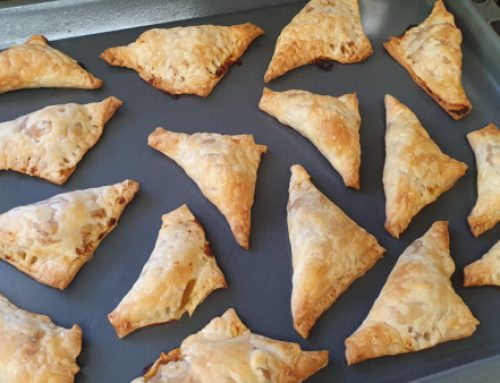Everyone loves a bargain once in a while, right? It is a moment of triumphant and joy, and great to be getting something for less than what you were meant to pay.
When you do your grocery shopping, what is the first thing that you look for? Do you head to the “sales” aisles or the bargain aisles first?
As for me, when I shop of my green fresh produce, I head off to the “sales” trolley, but it has to be early in the morning. I tend to find really great vegetables for “quick” sale. They are still good quality vegetables, but due to the perishable nature, the shop has to sell them off quickly when they have new loads coming in. If you are able to cook them within the next 1-2 days, it is a perfect way to save money.
My daughter’s recent experience
It was after work and my daughter decided to check out the sale aisle of Woolworths on the way to the train station. She ended up coming home with bags of marked down goodies, such as scones, marked down from $4.60 to $.92 a pack and hot cross buns, which were marked down from $3.50 to $0.70 a pack and the expiry date was a few more days. What joy and excitement for a triumphant shop! A definite bargain!
Taking the example of the scones, the original price was $4.60, and the sales price was $0.92, with the expiry date a few more days later. So naturally it was a real bargain for my daughter – a saving of $3.68. But would she use them all?
Value for money shopping
My definition of ‘value for money’ is not just about if the products are cheap, but whether they are of value to you. In another words, the purchase has to mean something to you, and be something that you would use and appreciate.
You see, something being cheap does not mean it is a bad thing. It can mean the shop marks the price of the products fairly, or sometimes they have to sell them in a hurry, thus having a huge mark down.
On the other hand, something being expensive does not mean it is a high quality product. It is just that the shop marked up the price to make it look expensive and exclusive, but the product may not be worth that much.
For those avid shoppers who shop frequently, such as for groceries which you have to do daily or weekly, you will have a fair idea on the cost of fresh products, such as vegetables, fish, meat etc.
Here are some tips of getting the most value out of your grocery shopping:
- Understand seasonable products, such as crabs, fruits and vegetables in season.
- Know where to get them, i.e. fresh food markets, local shops, farmers market.
- Take advantage of mark downs, especially for perishable products.
- Bulk purchase and share with friends where possible.
- Know what you are buying – use the internet, shop around and compare prices of similar products.
Personally, ‘value for money’ shopping is not about being cheap, it is about smarter shopping. It is about guiding our children about the value of money and to appreciate the things they purchase. I.e. (1) Are the products worth the value they are paying? (2) Will they be using or consuming the products they purchase?
Even if the products are cheap, but if you don’t appreciate or use them, then it is of NO value to you. In fact, it is a waste of money!
Make sure to focus on value for money purchases and happy shopping!








Leave A Comment